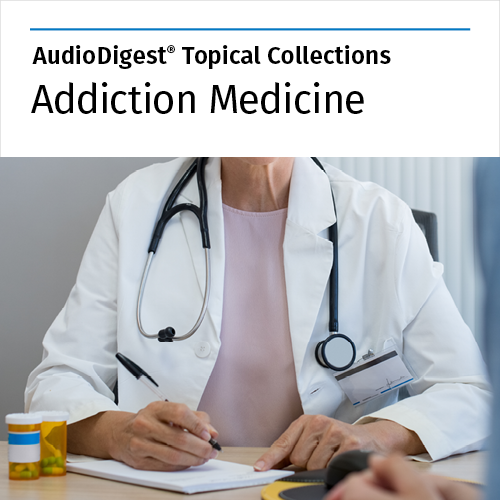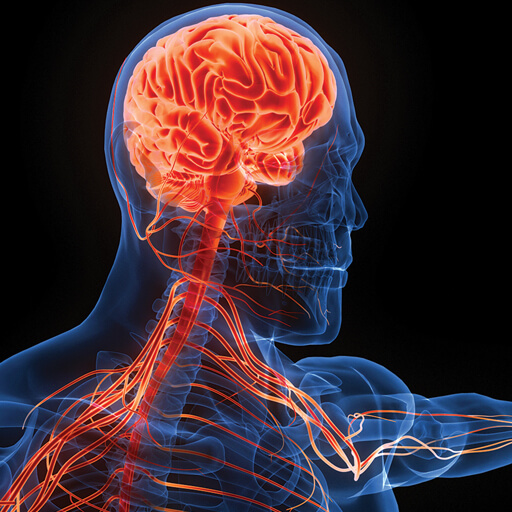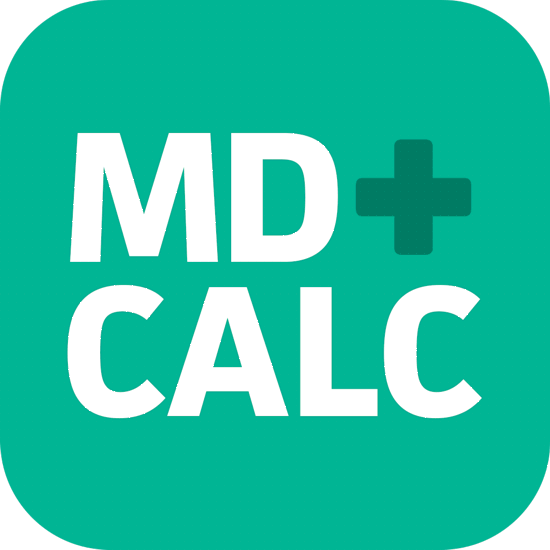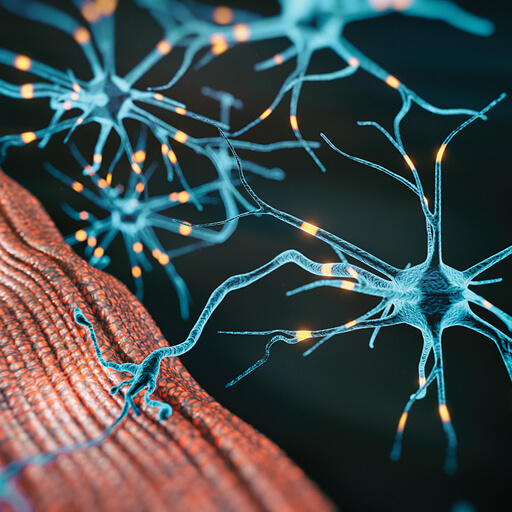Neurology CME
16 - 30 of 38 results
-
FREE
ScientiaCME Straightening out our approach to the management of cervical dystonia: optimizing treatment strategies
Activity Description / Statement of Need:
In this online, self-learning activity:
Cervical dystonia is the most common focal dystonia, characterized by involuntary muscular contractions resulting in abnormal head, neck, and shoulder movements in addition to posture that can cause tremor and pain. Early-onset dystonia can begin in infancy, childhood, or adolescence, and it generally progresses from focal to generalized. Adult-onset dystonia usually affects the upper part of the body; the origin of the dystonia determines the risk of spread. Cervical dystonia may appear as torticollis, laterocollis, anterocollis, or retrocollis. It may be distinguished from nondystonic hand tremor and essential tremor by the absence of limb tremor and the manner of neck movement. However, it is more difficult to distinguish from pseudodystonias, resulting in misdiagnosis and inappropriate treatment.
Target Audience:
The following HCPs: medical neurologists; physician assistants, nurse practitioners, and pharmacists who practice in neurology; and other clinicians who commonly encounter patients with cervical dystonia.
See full details chevron_right- Cost: Free
- Credit hours: 1.25
- CME credits awarded by: ScientiaCME
- Format: On-Demand Online
- Material last updated: May 19, 2023
- Expiration of CME credit: May 19, 2025
-
AudioDigest CME Addiction Medicine
Get up-to-date, evidence-based guidance on substance use and addictive disorders, including prevention, treatment, and harm reduction strategies. Primarily intended for Medical Doctors and Registered Nurses in Family Practice, Pediatrics, Internal Medicine, Anesthesiology, Psychiatry, and Obstetrics & Gynecology, this collection fulfills up to 8 hours of DEA registration requirements for physicians across all medical specialties.
See full details chevron_right- Cost: $399
- Credit hours: 21
- CME credits awarded by: Accreditation Council for Continuing Medical Education
-
FREE
ScientiaCME Management Of Lennox-Gastaut Syndrome (LGS) With Strategies That Have Legs
- Cost: Free
- Credit hours: 1
- CME credits awarded by: ScientiaCME
- Format: On-Demand Online
- Material last updated: April 05, 2025
- Expiration of CME credit: April 05, 2027
-
30% OFF W/ CODE: CME30
Oakstone CME Samuels Comprehensive Review of Neurology
Discover the Latest in Neurology CME
The Samuels Comprehensive Review of Neurology includes 65 one-hour lectures and offers a broad, evidence-based look at common and uncommonly seen disorders, as well as best practices in diagnosis and management. Authoritative and clinically experienced faculty share pearls, pitfalls, and practical continuing medical education updates.
Named for the late Dr. Marty Samuels, long-time Oakstone CME contributor, beloved educator, inspirational mentor, and legend in the field of neurology, this online video CME program provides important strategies — including judicious use of imaging and lab testing — that will help you treat patients with neurological disorders and achieve the best clinical outcomes.
See full details chevron_right- Cost: $995
- Credit hours: 59
- CME credits awarded by: Oakstone Publishing
- Format: On-Demand Online, USB Flash Drive
- Material last updated: December 31, 2023
- Expiration of CME credit: December 30, 2026
-
Oakstone CME Addiction Medicine for Non-Specialists
This activity meets the Drug Enforcement Administration (DEA) and Substance Abuse and Mental Health Services Administration (SAMHSA) requirement that as of June 27, 2023, new or renewing DEA registrants must complete a minimum of 8 hours of accredited continuing education (CE) on the treatment and management of patients with opioid or other substance use disorders before renewing their license.
See full details chevron_right- Cost: $595
- Credit hours: 24.75
- CME credits awarded by: Oakstone Publishing, LLC.
- Format: On-Demand Online
- Material last updated: April 30, 2025
- Expiration of CME credit: April 29, 2028
-
MDCalc Stroke CME
Your MDCalc CME subscription includes 15 AMA PRA Category 1 Credits™, with up to 10.5 credits available in the Stroke specialty.
Easily earn and redeem CME as you use review CME eligible calculator content. Over 1 million medical professionals use MDCalc’s over 550 tools daily to support clinical decision making at the bedside. Earn CME with the following Stroke calculators:
- FUNC Score
- ASTRAL Score
- ATRIA Bleeding Risk
- HEMORR2HAGES Score
- Hunt & Hess Classification
- Intracerebral Hemorrhage (ICH) Score
- MEWS Score
- mSOAR Score
- NEWS Score
- NIH Stroke Scale (NIHSS)
- RACE Scale
- SEDAN Score
- tPA Dosing for Stroke Calculator
- Cost: $199
- Credit hours: 15
- CME credits awarded by: EB Medicine and MD Aware, LLC.
- Format: On-Demand Online, Mobile App
-
30% OFF W/ CODE: CME30
Oakstone CME Neurology for Non-Neurologists
Expert CME Review of Neurological Conditions
Neurology for Non-Neurologists is an updated collection of concise 30- to 45-minute video CME lectures presented by faculty who excel in their clinical and teaching expertise. It covers all clinical neurology subspecialties and includes 70 lectures on the common and uncommon neurological problems encountered in the non-neurologist’s practice.
This online continuing medical education program will improve your ability to positively impact the care of patients with neurological symptoms and help bring about the best possible outcomes. Along with lectures discussing innovations, disparities, and inclusivity of neurological care, highlighted topics include:
- Holistic care of the Parkinson’s patient
- Stroke recovery
- CGRP inhibitors and migraine treatment
- Electrolyte disorders
- Neuro-palliative care
- TBI diagnosis and treatment
- and more…
- Cost: $695
- Credit hours: 36.5
- CME credits awarded by: Oakstone Publishing
- Format: On-Demand Online, Online Video, Online Audio, Audio CD
- Material last updated: August 31, 2022
- Expiration of CME credit: August 31, 2025
-
FREE
ScientiaCME (Multiple Sclerosis) Neuropsychiatry-Neurology
Target Audience: Neurologists
See full details chevron_right- Cost: Free
- Credit hours: 2
- CME credits awarded by: ScientiaCME
- Format: On-Demand Online
- Expiration of CME credit: Two years after release
-
FREE
ScientiaCME Transthyretin-mediated amyloidosis (ATTR): successful identification and its role in optimizing outcomes
Activity Description / Statement of Need:
In this online, self-learning activity:Transthyretin-mediated amyloidosis (ATTR) is a progressive, multisystem, life-threatening disorder characterized by the extracellular deposition of misfolded, insoluble amyloid fibrils. The role of the TTR protein is to transport thyroxine and retinol-binding proteins, and it is vital for cognition, nerve regeneration, and axonal growth. TTR itself is innately amyloidogenic even without the presence of genetic mutations, which may account for wild-type ATTR (wtATTR), while a hereditary form of ATTR (hATTR) may be passed to offspring through autosomal dominant inheritance. Left untreated, the average life expectancy of ATTR is 3 to 15 years from symptom onset.
Target Audience:
See full details chevron_right
The following HCPs: neurologists, cardiologists, and hematologists; physician assistants, nurse practitioners, and pharmacists in the aforementioned areas of specialty; and any other HCPs with an interest in or who may clinically encounter patients with ATTR.- Cost: Free
- Credit hours: 1
- CME credits awarded by: ScientiaCME
- Format: On-Demand Online
- Material last updated: December 15, 2023
- Expiration of CME credit: December 15, 2025
-
30% OFF W/ CODE: CME30
Oakstone CME Electrodiagnostic Medicine and Neuromuscular Disorders
Convenient, Comprehensive Neurology and PM&R CME
Designed for neurologists and physical medicine & rehabilitation doctors, residents, and fellows, this continuing medical education program covers all diagnostic and management approaches to both inherited and acquired neuromuscular conditions.
The 41 lectures in Electrodiagnostic Medicine and Neuromuscular Disorders — each just 30 and 45 minutes in length — delve into basic techniques and clinical applications of electrodiagnosis and ultrasound, as well as generalized disorders, motor neuron diseases, polyneuropathies, neuromuscular junction disorders, and myopathies. Key take-home points from this online CME program include:
- Basics of Needle EMG: Voluntary Activity. Motor unit potential waveform reflects the change in motor unit architecture due to disease processes, while the interference pattern provides information about the number of motor units and their activation.
- Neuropathies Associated with Systemic Disease and Cancer. Countless systemic disorders — metabolic, nutritional, inflammatory, infectious, neoplastic, and others — can cause neuropathy and accordingly, neuropathy can take many forms. Carefully characterizing the phenotype of neuropathy can help narrow down the relevant causes.
- Muscle Channelopathies. For a patient with a personal and family history of muscle stiffness and pain, consider genetic testing for myotonic disorders.
- And more…
- Cost: $1145
- Credit hours: 28.50
- CME credits awarded by: Oakstone Publishing, LLC.
- Format: Online, On Demand
- Material last updated: February 15, 2023
- Expiration of CME credit: February 15, 2026
-
FREE
ScientiaCME Charting the course to best practice in the recognition and management of amyotrophic lateral sclerosis (ALS)
- Cost: Free
- Credit hours: 1
- Format: On-Demand Online
- Material last updated: 02/06/2024
- Expiration of CME credit: 02/06/2026
-
FREE
ScientiaCME Thymidine kinase 2 deficiency identification and management: TK2D-MDDS, do you copy?
Activity Description / Statement of Need:
In this online, self-learning activity:
Thymidine kinase 2 deficiency (TK2D) is an ultrarare mitochondrial disease caused by recessive mutations in the TK2 gene and manifesting as a form of mitochondrial DNA depletion/deletion syndrome (MDDS) and mitochondrial myopathy. Under normal conditions, the TK2 gene encodes for the thymidine kinase enzyme present in the mitochondria, which is responsible for the phosphorylating of pyrimidine nucleosides, deoxythymidine, and deoxycytidine. These are the first steps in mitochondrial DNA synthesis, and researchers speculate that TK2 mutations affect muscle tissue because its higher energy demands make it most susceptible to mitochondrial impairment. Mutational analyses of patients with MDDS have found that approximately 15% have TK2 mutations, which may be extrapolated to about 600 to 2,700 individuals in the US.
Target Audience:
HCPs including but not limited to: neurologists, pediatric neurologists, pediatricians, primary care providers, pulmonologists, gastroenterologists, and medical geneticists; physician assistants, nurse practitioners, pharmacists, and nurses who practice in the aforementioned areas of specialty; and any other HCPs with an interest in or who may clinically encounter patients with TK2D.
See full details chevron_right- Cost: Free
- Credit hours: .75
- Format: On-Demand Online
- Material last updated: 02/07/2025
- Expiration of CME credit: 02/07/2027
-
FREE
ScientiaCME Best practices and opportunities for improvement in the medical management of Dravet syndrome
In this online, self-learning activity:
Dravet syndrome (DS) is a rare form of early-onset epilepsy syndrome affecting between 1:16,000 and 1:46,000 and is associated with pleomorphic seizure activity, cognitive decline, motor, and behavior abnormalities. Sudden unexpected death in epilepsy is the cause of death in nearly half of the deaths in patients with DS, with the mean age of death 8.7 years old and 73% of deaths occurring before age 10. Seizures typically begin in the first year of age, with most occurring between months 5 and 8, and it is usually a prolonged, tonic-clonic (accounting for 52% of first seizures) or hemiclonic (35%) seizure. Environmental triggers or events, such as fever, acute stress, and physical exercise may precipitate seizures, and at least 85% of those who are clinically diagnosed with DS have variations in the SCN1A gene. Unfortunately, diagnosis is not uncommonly delayed until a patient 3 years of age or older, prior to which antiseizure medication selection may be suboptimal or ineffective, which may lead to seizure exacerbation, an increased risk of status epilepticus, and worse cognitive outcomes.
See full details chevron_right- Cost: Free
- Credit hours: 1
- CME credits awarded by: ScientiaCME
- Format: On-Demand Online
- Material last updated: 03/02/2025
- Expiration of CME credit: 03/02/2027
-
USE CODE CMELIST10 FOR 10% OFF THIS CME
A Nationally Approved CME/CE Medical Marijuana Course – TheAnswerPage
The course introduces the reader to the endocannabinoid system and its interaction with the components of the cannabis plant, and addresses various aspects of medical marijuana, including administration, therapeutic use, drug metabolism, physiologic and cognitive effects, potential risks, and drug interactions.
The use of marijuana in obstetric patients, pediatric patients, adolescent patients and elderly patients is discussed in detail. Important considerations for patients with ischemic heart disease, hepatic disease, psychotic illness, and those with a history of drug dependence are also provided.
See full details chevron_right- Cost: $120
- Credit hours: 3
- CME credits awarded by: ACCME – AMA PRA Category 1 Credits™, ACPE, AANP, ANCC, APA, AGD PACE
- Format: On-Demand Online
- Material last updated: 05/21/2024
- Expiration of CME credit: 5/21/25
-
USE CODE CMELIST10 FOR 10% OFF THIS CME
CBD in Clinical Care – TheAnswerPage
CBD in Clinical Care provides information that will assist clinicians in effectively treating and counseling cannabidiol (CBD) consumers. The physiological effects of CBD, CBD drug interactions, CBD’s side effects, and the conditions for which CBD has been shown by evidence-based clinical studies to be efficacious are all discussed in this course.
See full details chevron_right- Cost: $80
- Credit hours: 2
- CME credits awarded by: ACCME – AMA PRA Category 1 Credits™, ACPE, AANP, ANCC, APA, AGD PACE
- Format: On-Demand Online
- Material last updated: 05/21/2024
- Expiration of CME credit: 05/21/2025












